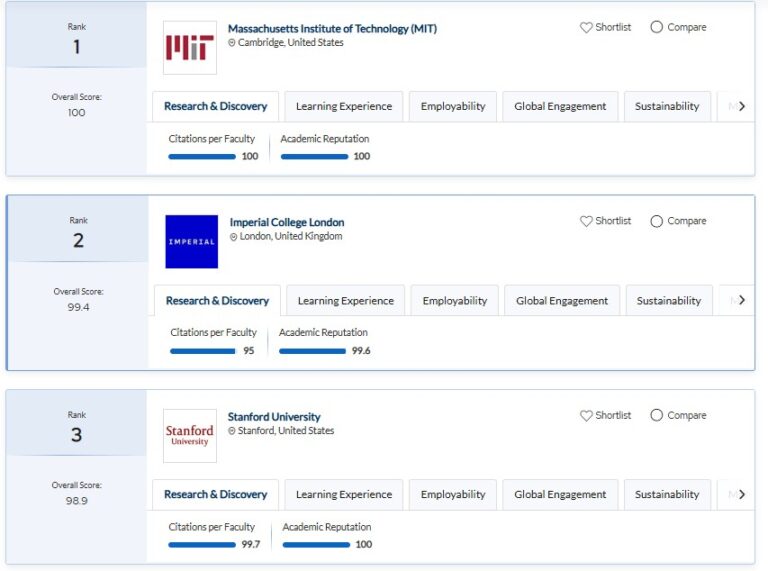NUS ranks 8th, NTU rises to 12th in QS World University Rankings 2026
The National University of Singapore (NUS) has retained its global 8th place in the QS World University Rankings 2026, released on 19 June. Nanyang Technological University (NTU) rose to 12th, marking steady progress for Singapore’s higher education landscape.

- NUS retained 8th place globally in the QS World University Rankings 2026, remaining Asia’s top-ranked institution.
- NTU rose three spots to 12th, reflecting momentum in Singapore’s higher education sector.
- While NUS and NTU improved in employer reputation, all four Singaporean universities faced challenges in citations per faculty, faculty-student ratio, and sustainability.
The National University of Singapore (NUS) has maintained its global position at 8th place in the QS World University Rankings 2026, released on 19 June by Britain-based Quacquarelli Symonds (QS).
Close behind, Nanyang Technological University (NTU) advanced three positions to 12th. This follows its significant leap of 11 places in the previous year, underscoring sustained momentum in Singapore’s higher education sector.
NUS consolidates global and regional standing
NUS remains the highest-ranked Asian university and the first from the region to enter the global top 10.

According to QS, this year’s rankings evaluated over 1,500 institutions across 106 countries and territories. The global leaderboard remains dominated by American and British universities. The Massachusetts Institute of Technology (MIT) held the top spot for the 14th consecutive year, followed by Imperial College London. Stanford University climbed to third, while the University of Oxford and Harvard University took fourth and fifth positions respectively.

Rankings methodology and indicators
The QS World University Rankings are based on nine indicators. These include academic reputation (30 per cent), citations per faculty (20 per cent), and employer reputation (15 per cent), which carry the greatest weightage.
NUS improved one place to 14th in academic reputation and gained 16 places in employer reputation, reaching 32nd. However, it slipped three positions to 64th in citations per faculty.
NUS president Tan Eng Chye said the results affirm the university’s long-term commitment to academic excellence and innovation. He highlighted improvements in employer perception and international collaborations as evidence of growing confidence in NUS graduates and faculty.
NTU strengthens global presence
NTU climbed to 12th position largely due to improvements in employer reputation, where it advanced from 92nd to 67th. Gains in the international student ratio also contributed to its rise.
NTU president Ho Teck Hua said the results reflect the university’s adaptability and ambition. He pointed to recent academic initiatives such as the College of Computing and Data Science and the Honours College, which are designed to equip students with technology-driven skills.
He added that NTU continues to attract global academic talent through the recruitment of both early-career researchers and established scholars.

Shifts among other Singapore universities
Beyond NUS and NTU, the Singapore Management University (SMU) saw substantial progress, jumping 74 places to 511th in the 2026 rankings.
In contrast, the Singapore University of Technology and Design (SUTD) dropped from 440th to 519th.
Despite these contrasting movements, all four Singaporean universities – NUS, NTU, SMU and SUTD – experienced either stagnant or declining scores in four key indicators: faculty-student ratio, citations per faculty, employment outcomes and sustainability.
International recognition of Singapore’s system
QS senior vice-president Ben Sowter praised Singapore’s higher education system. He said the country’s strong global rankings reflect exceptional research output and a collaborative international environment.
He added that Singapore’s emphasis on skills development, innovation, and workforce adaptability continues to drive its educational success. According to Sowter, these factors position Singapore as a global leader in skills-first, future-ready education.
Broader implications for higher education
The strong performance of NUS and NTU demonstrates Singapore’s continued prominence in the global academic landscape. Analysts note that sustained improvements in employer reputation underscore growing confidence among international recruiters in Singaporean graduates.
However, the drop in citations per faculty suggests continued challenges in research productivity relative to faculty size. Similarly, stagnant scores in sustainability and faculty-student ratio highlight areas requiring attention as competition among top-tier institutions intensifies.
In the broader context, the rankings reaffirm Singapore’s strategy of investing heavily in research, technology, and human capital to remain competitive globally. Universities are expected to further strengthen their international collaborations and interdisciplinary programmes to meet evolving workforce demands.








0 Comments